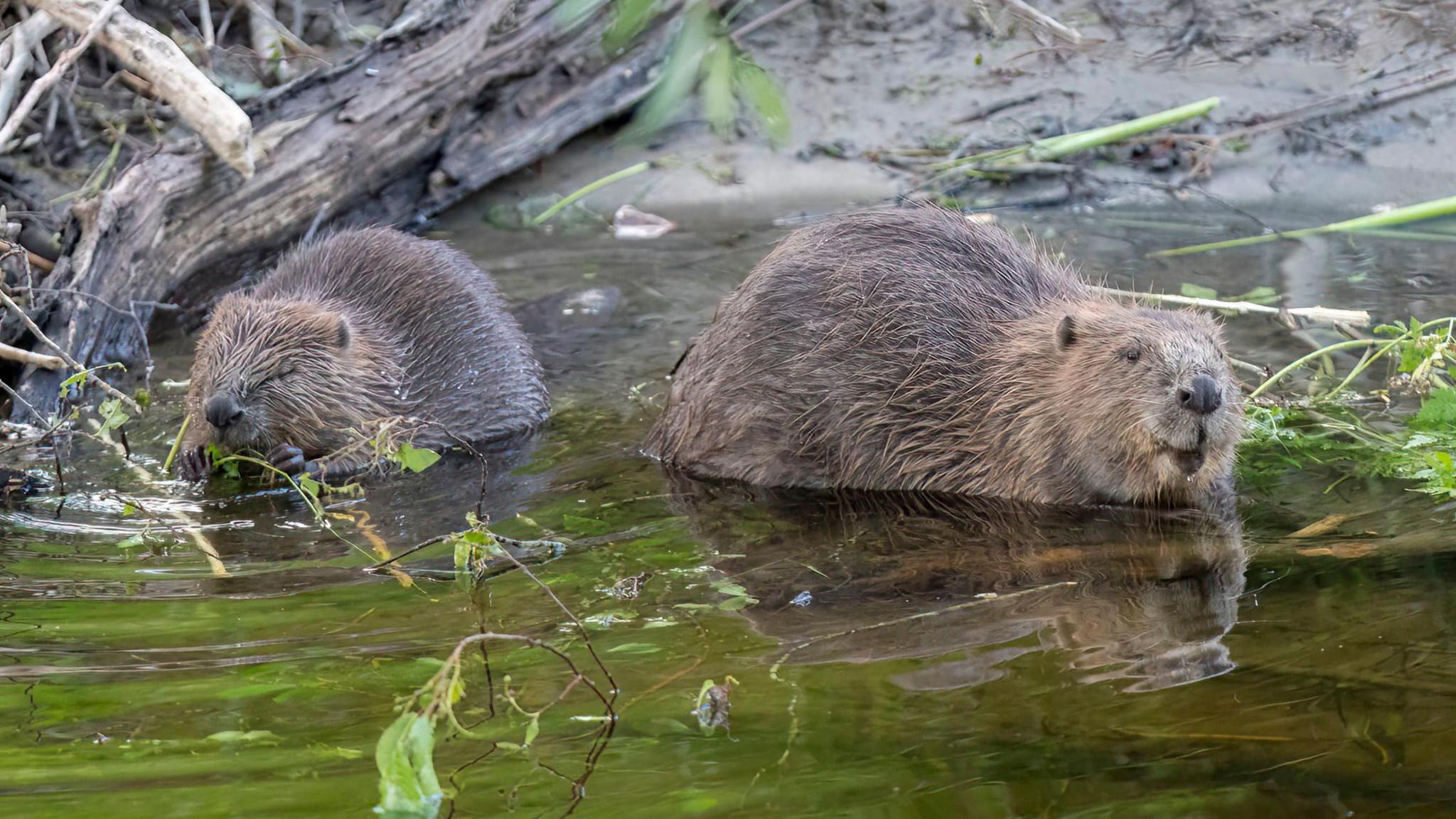Wales considers protecting beavers amid release call

Beavers disappeared from Britain about 400 years ago, but have since re-emerged
- Published
The Welsh government is considering introducing legislation to protect beavers, as wildlife charities call for them to be released into rivers across Wales and England.
Unlike in England and Scotland, beavers are not protected in Wales because they are not recognised as a native species.
Beavers can bring huge benefits to nature, including improving river water quality and increasing biodiversity, but critics say they destroy crops and that their dams pose a flooding risk.
A spokeswoman for the Welsh government said it was considering a “package of proposals” following a review of evidence by Natural Resources Wales (NRW).
Baby boom prompts call to boost wild beaver population
- Published29 August 2024
Beavers should be reintroduced in wild 'carefully'
- Published30 August 2024
"This includes exploring the most appropriate options for legally protecting the European beaver, together with policy and management proposals," the spokeswoman said.
The Wildlife Trusts, a network of wildlife charities, have urged governments in England and Wales to publish strategies for returning beavers to their natural habitats and for "illegal" wild populations to be allowed to stay. They have also called for the species to be given full legal protection in Wales.
The calls come amid an upsurge in sightings of baby beavers – known as kits – this summer.
Beavers disappeared from Britain about 400 years ago, after being hunted to extinction for their meat and fur.
But in recent decades, they have re-emerged in fenced enclosures on nature reserves or been found living in rivers through unlicensed releases and escapes.
There are four managed enclosures that house beavers in Wales, and an unknown number are living in the wild.
In January 2023, the Welsh government asked NRW to carry out a feasibility study on the reintroduction of beavers, saying they can boost "the health of plants, wildlife and the UK countryside".
"But we recognise they have undesirable effects, especially when they are not managed carefully," a spokesman said at the time.
NRW told the Local Democracy Reporting Service this week that the review has taken place.
"We have used the existing evidence reviews from England and Scotland to assess how they might apply to Wales and identified any evidence gaps," a spokeswoman said.
Alicia Leow-Dyke, from Wildlife Trusts Wales' beaver project, said protecting the species in Wales would bring it in to line with legislation in England, with many beavers living along rivers between the two countries.
"Eventually we’re going to see natural dispersal from England into Wales and you’ll have beavers protected on one side, they’ll cross the river not be protected on the other. So it just makes things a lot more difficult," she told BBC Radio Wales Breakfast.
She also said protecting beavers would help "managed structure" to be put in place, to help guard against their activities causing disruption, such as unwanted tree felling or dams being located in unsuitable places.